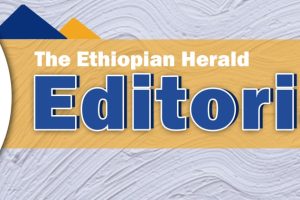
In an increasingly connected world, aligning national plans with regional and global priorities is not an option, but a must. Effective alignment of national policies with regional and continental plans proves imperative in terms of policy efficiency and competency. The success of national development arguably hinges on inclusive and transparent systems that measure performance, identify gaps, and adjust strategies in line with continental and international priorities.
In this regard, Ethiopia has steadily been trying to align its national development strategies with broader continental and global frameworks. As Africa strives toward the aspirations of Agenda 2063 and the global community races to meet the 2030 SDG targets, the country’s approach presents a compelling case for harmonized development planning. Its efforts are a solid indicator of the importance of shared goals and strategies. The country’s experience could serve as a model for how countries can effectively localize global ambitions.
The incumbent’s ongoing effort to integrate the country’s socioeconomic and development plans with Africa’s agendas and SDGs is a strategic ambition rooted in cooperation and long-term growth. This alignment is not merely a rhetorical gesture; it is being operationalized through strong monitoring, evaluation, and reporting systems. These tools are critical in ensuring that policies are not only designed with ambition but are implemented with impact. Ethiopia’s emphasis on data-driven decision-making sets a commendable standard for policy transparency and public accountability.
The recent 25th anniversary celebration of the African Evaluation Association (AfrEA) in Addis Ababa indicated Ethiopia’s growing leadership in this regard. Speaking at the occasion, State Minister of Planning and Development, Turumar Abate, said that national development cannot be isolated from regional and global realities. Effective alignment with global agendas enhances not only resource mobilization and knowledge exchange but also ensures that domestic policies are resilient and adaptable in a rapidly changing world, she added.
Turumar reaffirmed the country’s commitment to aligning national development strategies with regional and global agendas, including Agenda 2063 and the Sustainable Development Goals (SDGs).
The minister briefed participants on Ethiopia’s active efforts to harmonize its homegrown 10-Year Development Plan with Africa’s Agenda 2063. These development frameworks, he noted, serve as guiding blueprints for sustainable economic growth, social equity, and effective governance.
A particularly noteworthy outcome of the conference was the consensus around the need for continuous capacity-building efforts. Training programs, knowledge exchanges, and collaborative engagements were all recognized as essential tools to fortify national M&E frameworks and ensure data-driven governance. The minister further emphasized that Ethiopia has been vigorously pursuing these strategies, demonstrating measurable progress in tracking policy impacts and refining development interventions accordingly.
The commemoration of AfrEA’s 25th anniversary served as a platform to exchange best practices, discuss emerging trends in evaluation methodologies, and reinforce partnerships across borders for capacity building and institutional strengthening.
Ethiopia’s model provides a useful instance for other countries looking to align their national development plans with international frameworks as the continent develops. The government has shown a practical approach to sustainable development by concentrating on coordinating internal reforms with externally approved goals while upholding robust review and oversight procedures. But maintaining this momentum will call for more political will, sufficient funding, and closer cooperation with development partners and civil society.
THE ETHIOPIAN HERALD FRIDAY 20 JUNE 2025





